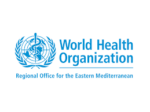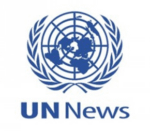The World Bank has joined forces with the World Health Organization (WHO) and the United Nations Children’s Fund (UNICEF) to launch a massive effort to improve healthcare access for over 8 million vulnerable people in Sudan. This critical partnership is made possible through an $82 million agreement, which aims to strengthen the country’s healthcare system and address the urgent needs of its most vulnerable populations.
Sudan’s healthcare system is currently facing unprecedented challenges, with over 70% of hospitals and health facilities in conflict-affected areas rendered non-operational due to damage, destruction, or lack of supplies. Frontline healthcare workers, including nurses and doctors, have gone months without pay, and security concerns and limited access have severely hindered the delivery of vital vaccine supplies and routine immunization activities.
The partnership, known as the Sudan Health Assistance and Response in Emergencies (SHARE) project, will focus on providing essential medicines, training and mentoring healthcare workers and delivering critical health and nutrition services to vulnerable children and families. The project will also invest in enhancing disease surveillance systems, equipping emergency operations centers, and training rapid response teams to strengthen the healthcare system’s preparedness and emergency response capabilities.
According to WHO Representative in Sudan Dr. Shible Sahbani, “The SHARE project exemplifies WHO’s commitment to ensuring that communities in Sudan have access to vital health services, especially in times of crisis. By investing in preparedness and resilience, we are paving the way for a stronger, more sustainable healthcare system”.
UNICEF Representative for Sudan Sheldon Yett emphasized the critical need for this partnership, stating, “In Sudan, the systems providing vulnerable children and families with essential social services are on the brink of collapse. By working together, we can invest in rebuilding them and provide lifesaving healthcare and nutrition services to children who desperately need them amid the ongoing conflict”.
This groundbreaking partnership marks a significant step forward in addressing the pressing healthcare needs of Sudan’s most vulnerable populations. As the situation in Sudan continues to unfold, this critical collaboration will play a vital role in shaping the country’s healthcare future.



